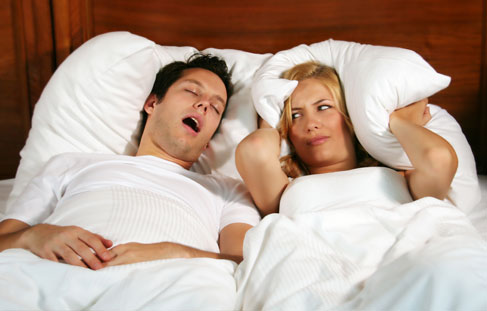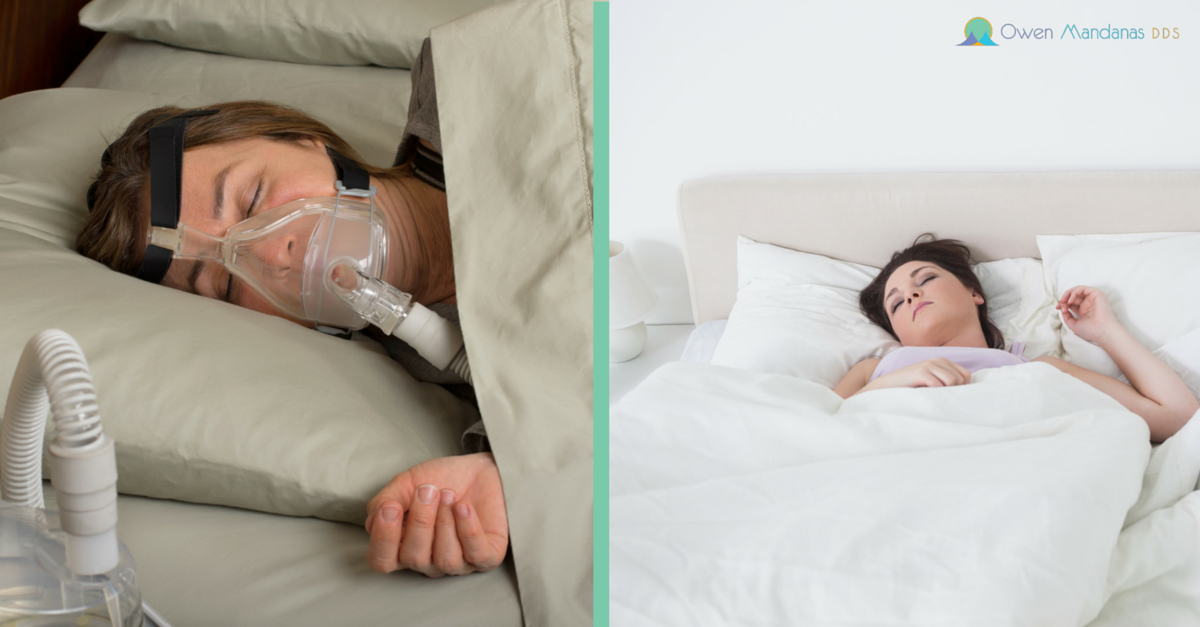Can Sleep Apnea Affect My Health?
Sleep apnea is a disorder that occurs when your breathing is interrupted while you sleep. Untreated sleep apnea causes people to stop breathing repeatedly as they sleep, this can deprive the brain and body of much needed oxygen.
The two types of sleep apnea are:
- Obstructive sleep apnea – This is the most common type of sleep apnea and is caused by the airway being blocked when the soft tissue at the back of the throat collapses during sleep. A popular analogy is to think of drinking a thick milkshake through a paper straw. As you suck in, the weak paper collapses and you can’t get any of the milkshake. When you’re awake your brain signals the muscles of your tongue and throat to stay strong, acting like a stronger plastic straw. But when you sleep those signals don’t always reach your muscles, especially when you sleep on your back.
- Central sleep apnea – This type of sleep apnea is not caused by a blockage but by the brain. CSA is caused by instability of the respiratory control center causing the brain to fail to signal muscles to breath.
Who’s At Risk For Sleep Apnea?
Anyone is susceptible to sleep apnea at any age – even kids. But there are certain traits that will increase your risk.
- Male
- Overweight
- Over 40 years old
- Menopause
- A large neck (Over 17” in men and 16” in women
- Large tonsils or tongue
- Small jawbone
- Family history of sleep apnea
- Gastroesophageal reflux (GERD)
- Nasal obstructions from a deviated septum, allergies, or other sinus issues.
How Can You Tell if You Have Sleep Apnea?

Silence – No snoring does not necessarily mean that someone is breathing unobstructed. Silence could indicate that they’re not breathing at all as a result of sleep apnea. If you listen or watch carefully when someone is sleeping you can see when they semi-wake up and take a deep breath.
What are the Effects of Sleep Apnea?
Untreated sleep apnea has a large variety of effects on your health. Your body and brain are extremely sensitive to oxygen levels and when those drop it can wear on your overall health. The longer your periods of no breathing are, the higher your chances for more serious effects.
Effects due to your heart being under extra stress.
*Inflammation *Diabetes
*High Blood Pressure *Stroke
*Irregular heartbeat *Heart attacks or heart failure
Effects due to increases in hormones and neurotransmitters.
*Increased inflammation *Higher stress
*Mood swings *Hypothyroidism
Because you have to wake up to end an episode of sleep apnea you will be forced to wake up over and over again during the night. This reduces the quality and quantity of sleep you get. Even if you don’t notice the periods of wakefulness your brain does.
Effects due to insufficient sleep.
*Headaches *Poor performance at work
*Insomnia *Academic underachievement
*Heightened ADHD *Motor vehicle crashes
*Daytime sleepiness *Fatigue
*Lowered concentration *Reduced memory
*Depression *Cognitive Deficits
How Can I Treat Sleep Apnea?
Depending on the cause of your sleep apnea, there are several options available. Most require the care of a doctor or sleep specialist.
*Weight Loss – If your sleep apnea is caused by being overweight then shedding some of those pounds can reduce the pressure on the muscles around your airway.

*CPAP – A Continuous Positive Airway Pressure machine provides a positive flow of air via a mask worn all that keeps your airway open and prevents it from collapsing.
*Oral Appliance – These appliances work by keeping the lower jaw forward to keep the airway open and prevents the tongue and muscles from relaxing and blocking the airway. These simple mouth pieces are custom made for each individual and can be worn at night without restricting movement or limiting comfort. This is not suitable for all cases of sleep apnea, but it is the best, least invasive, first defense. A simple trip to your dentist is all it takes to get started.


